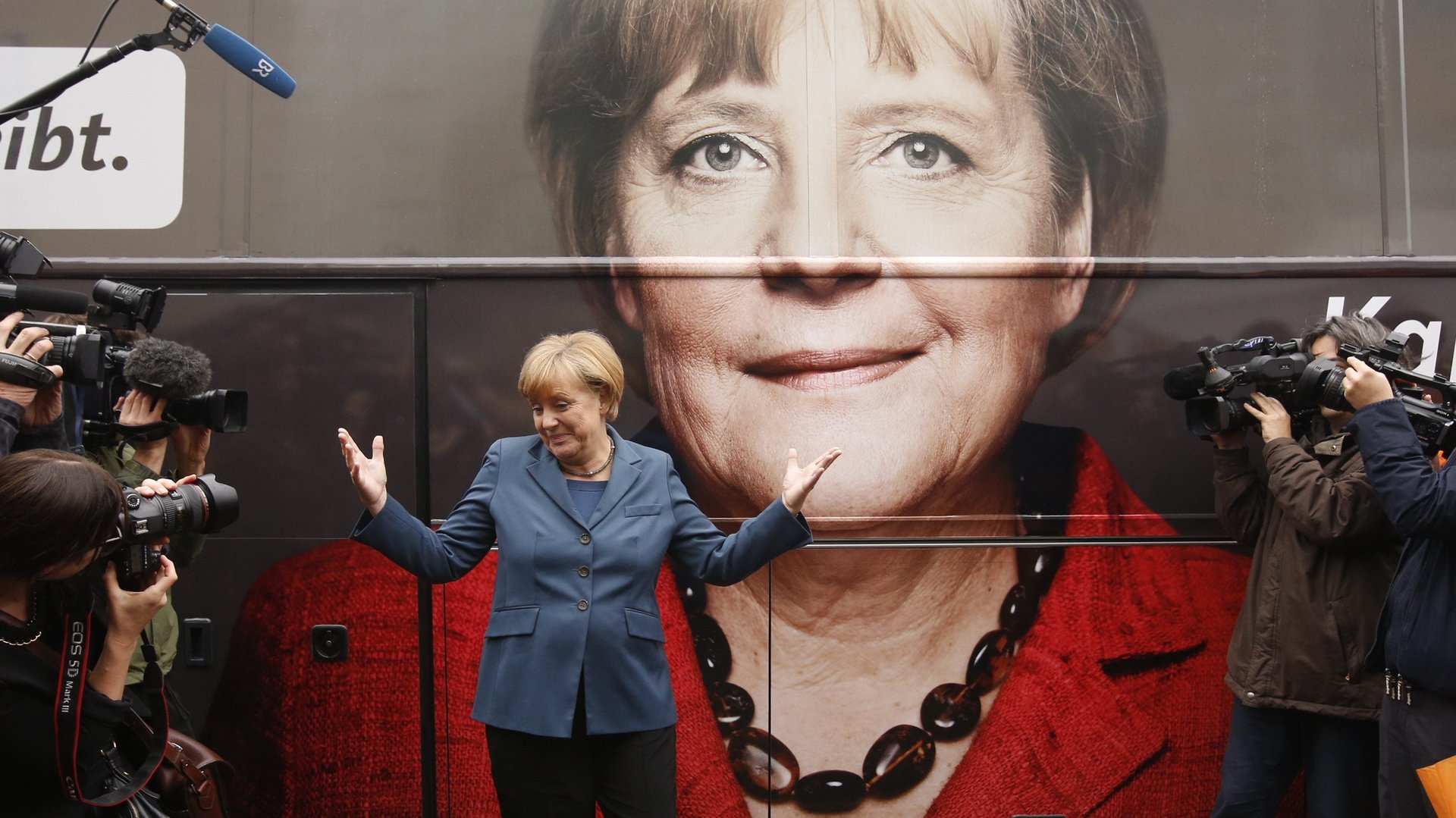In a nod to Angela Merkel’s political genius, Germany votes “yes” to gay marriage
Angela Merkel, the longest-serving national leader in the European Union, just showed off the political cunning that has kept her in office so long.


Angela Merkel, the longest-serving national leader in the European Union, just showed off the political cunning that has kept her in office so long.
In what has so far amounted to a rather boring re-election campaign for Merkel, the German chancellor decided to shake things up, to her great benefit. After long opposing gay marriage, Merkel called a vote on the matter, under pressure from her rivals. Four days later, the measure passed with a strong majority (393 lawmakers voted for, 226 against).
The move solved a rather inconvenient puzzle for her candidacy. Merkel has long argued against marriage equality on the grounds of “children’s welfare,” admitting she had a “hard time” with the issue. Her main rival, Social Democrat Martin Schulz, has championed gay marriage as a central campaign issue (paywall) and used it to block her chances of forming a coalition as chancellor if she wins, by refusing to enter any government that does not introduce gay marriage. The Greens and the free-market Free Democrats (FDP) made the same pledge.
Reversing her stance threatened to alienate some of her core conservative base, and drive them further to the right, toward the Alternative for Deutschland party (the only party to oppose same-sex marriage).
But Merkel also knew public opinion had significantly shifted, (73% of her conservative supporters now back gay marriage), so she decided to play it both ways. She opened the door to a vote, instructing lawmakers to vote their conscience and saying that she wasn’t against the idea in principle. And then she voted “no.”
Merkel explained her decision to allow the vote at an event hosted by the women’s magazine, Brigitte. She spoke of a “life-changing experience” in her home constituency, where she met a lesbian couple caring for eight foster children together. The amendment legalizes gay marriage and adoption.
Then, after the vote, she neatly squared her own opinion with the national mood. “For me, marriage in the Constitution is marriage between a man and a woman and that is why I did not vote in favor of this bill today,” she told reporters. “I hope that the vote today not only promotes respect between different opinions but also brings more social cohesion and peace.”
In doing so, she gave a nod to her conservative backers, while keeping progressive voters happy, and paved the way for coalition-building come September.
Germany joins a host of European countries, including France, the UK, Sweden, the Netherlands, Belgium, and Spain, that now recognize gay marriage.